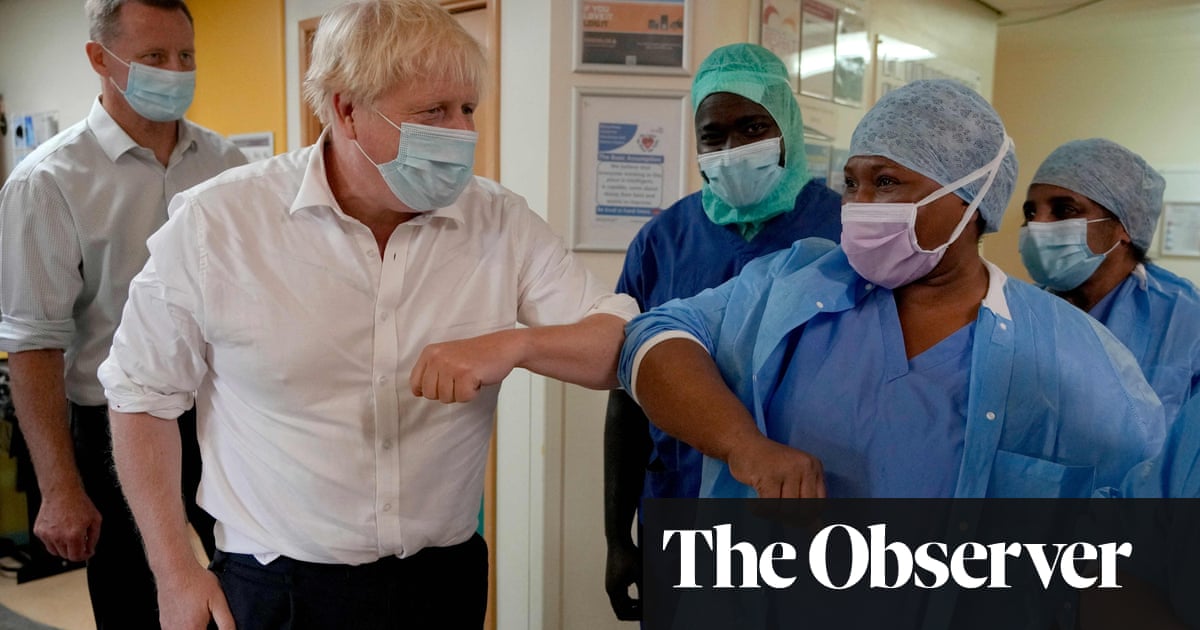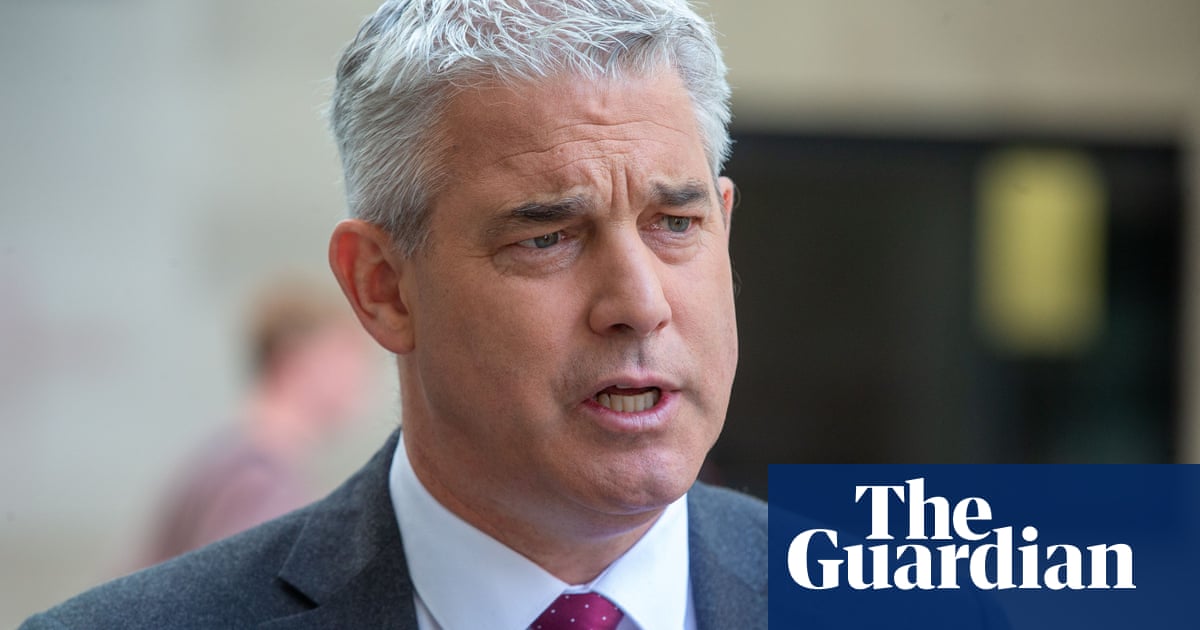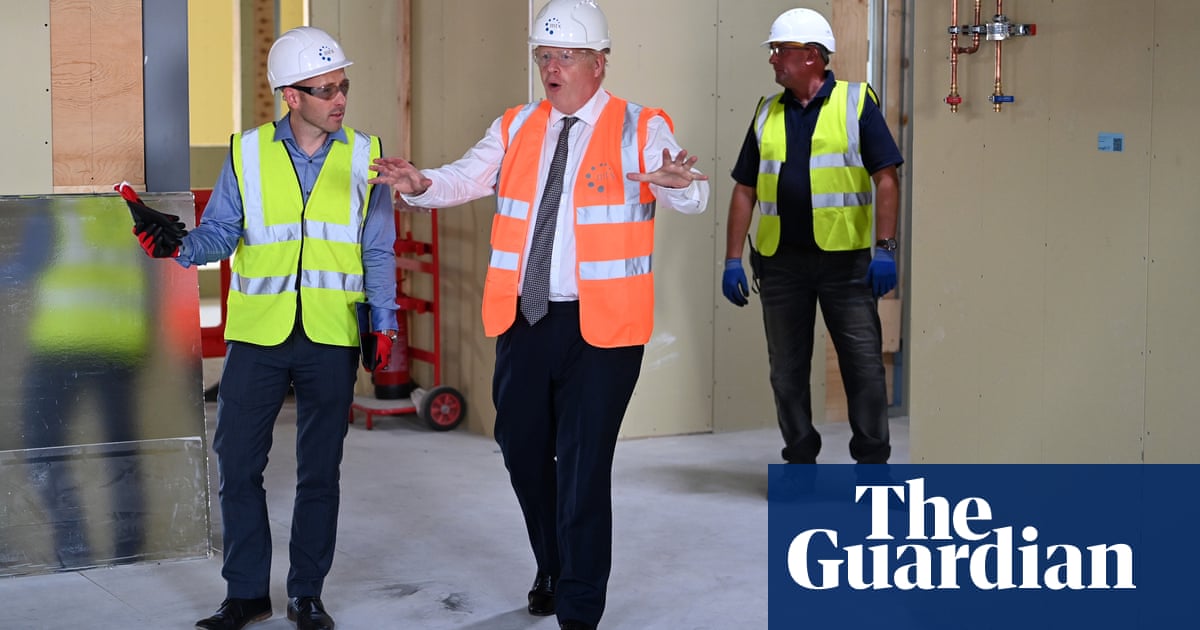
Ministers have set out more details of Boris Johnson’s much-scrutinised election promise to build 40 new hospitals in England, revealing that the bulk of the projects involve rebuilding or consolidation, and that only four have been started.
The scheme comes with a promised spending package of £3.7bn. However, NHS Providers, which represents hospital trusts, said the real cost of building 40 new hospitals would be more like £20bn.
The plan for 40 hospitals to be built by 2030, first made by the health secretary, Matt Hancock, at last year’s Conservative party conference, and repeated many times by Johnson during the subsequent election campaign, was criticised at the time for being based more on aspiration than definite plans.
Experts said that the initial programme involved the bulk of money going to just six sites, with a much smaller pot of £100m set aside for seed funding among 34 hospitals, with few signs of how much money would be available overall.
The details set out on Friday by the health department list 40 projects due to be completed by 2030 under the government’s health infrastructure plan, with eight other sites invited to bid for funding.
Of the 40, 26 form part of the second phase of the infrastructure plan, due to take place between 2025 and 2030. Six more are planned under the first stage, by 2025. Of the other eight, four are already being built, and four more are awaiting final approval.
Additionally, more than half the projects are not new hospitals as such, but comprise rebuilding projects on existing sites, consolidations of other hospitals, or extra units.
The four already being built are in Sandwell in the West Midlands, north Cumbria, Liverpool and Brighton. Those awaiting approval are in London, Morpeth in Northumberland, Manchester and Nottingham.
Johnson said: “The dedication and tireless efforts of our nurses, doctors and all healthcare workers have kept the NHS open throughout this pandemic. But no matter what this virus throws at us we are determined to build back better and deliver the biggest hospital building programme in a generation.”
Saffron Cordery, deputy chief executive of NHS Providers, welcomed the announcement but warned that the 40 new hospitals would cost about £20bn, most of which would need to be found in the next few years: “Building a new, average mid-sized hospital costs around £500m, so this [£3.7bn] is just an initial downpayment.”
She added: “If the government wants these hospitals built in the time it is specifying, trusts will need the rest of the capital allocated as soon as possible.”
The announcement also lacked “any meaningful investment in our mental health estate”, she said.
Cordery said: “Any additional funding to address long-neglected infrastructure and facilities to ensure safe, high-quality care is welcome and a number of trusts have well-developed plans to get this important work under way.”
The shadow mental health minister, Rosena Allin-Khan, said the announcement was “a missed opportunity and extremely disappointing”.
She said: “It is an insult that mental health – which represents one-quarter of all health needs – has again lost out. The government must take mental health seriously and provide the resources and facilities it needs.”
Nigel Edwards, the chief executive of the Nuffield Trust health thinktank, said the £3.7bn reflected the “feast after famine” approach that recent governments had taken to NHS capital funding – the money it uses to build and modernise facilities and buy equipment such as scanners and IT – and which had made planning new projects difficult.
“This funding does not make up for the fact that the health service has not had a proper strategic view of capital investment for many years,” he said.
The Royal College of Nursing also warned that, however significant any spending on hospitals, this would not make up for a shortage of nursing staff. Donna Kinnair, its general secretary, said: “Whether hospitals are rebuilt or wholly new, they will struggle to provide safe patient care without enough nurses. Unfair salaries are pushing nursing staff out of jobs they love when England’s NHS is already missing tens of thousands.”












